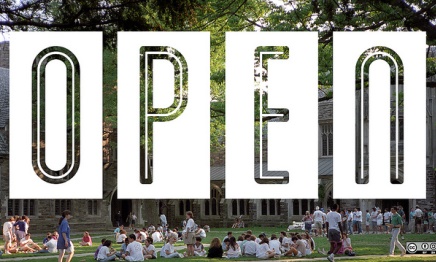Validation key for OER-revolution

Before the summer, the European Commission will publish its new initiative ‘Opening up Education’. The text is still in flux, as comments from stakeholders are being taken up. Ricardo Ferreira of the Commission’s unit dealing with Skills, Qualifications and Multilingualism policy gives a flavour of what plans there are ahead.
Ferreira: “Enhancing skills, qualification and multilingualism is key for the Commission’s strategy to facilitate peoples’ access to the labour market and contribute to growth and employment. ICT helps to modernise education and training and enhances cooperation in Europe.”
“There are still problems to be solved, for example the interoperability standards and quality standards. Fostering the use of ICT in education helps people from different countries to share information and cooperate with each other. The initiative ‘Opening up Education’ is a joint initiative of the Directorate-General for Education (EAC) and the Directorate-General for Networks (CNECT).”
Financed through Erasmus
The proposed actions in the upcoming initiative also push for the opening up of educational material, especially when its development was publicly funded, for instance through the Erasmus for All Programme.
“Open educational resources – the so-called OER – can be a big challenge”, says Ferreira, “since they force institutions to rethink their role. It can fundamentally alter the way people learn and the way people teach. We need to make sure that higher education institutions are prepared for this change and play an active role.”
In the text introducing the initiative (published alongside with a public consultation), it is put this way: “Traditional education and training institutions who do not integrate OER and ICT, are also pushed to seek cooperation with newer and more open educational providers. This is vital for them to meet the expectations of born-digital learners and to avoid losing their reputation or the attractiveness of their educational offer.”
Increasing demand for higher education
Ricardo Ferreira: “I see it this way: when the world changes you have two opportunities, either you rethink your own situation or you deny the change. Clearly different open education tools emerge from bottom-up, like the massive open online courses – the so-called MOOCs. It links to the increasing demand for higher education in the world.”
During the negotiations on the 7 year budget for the EU, the budget of DG CNECT was reduced compared to the initial Commission proposal, but Ferreira is not worried that this will backlash on the Opening up Education-initiative. “The Education budget has been cut, in comparison with the initial Commission’s proposal, but still the budget is higher than it used to be in the last 7 year period On a political level the Commission is deeply committed to renewing education with the help of ICT.”
Validation of – informally acquired – skills
One of the pressing issues the Commission addresses is the validation of skills acquired in non-formal and informal learning. “We are making good progress in this area. Ministers adopted a strategy in December”, Ferreira says.
“This is very important if you want to reap the fruits of Open Education. To give an example: Say you are 50 years old and lose your job. Would you normally go back to school to update your skills? Often not. At the same time your skills are outdated. Open Educational Resources like MOOCs can offer these people a way out of the deadlock.”
Meest Gelezen
Wederom intimidatie van journalisten door universiteit, nu in Delft
‘Burgerschapsonderwijs moet ook verplicht worden in hbo en wo’
Extra geld voor bètafaculteiten is daar nooit terechtgekomen
Raad van State: laat taaltoets nog niet gelden voor hbo-opleidingen
Vrouwen houden universiteit draaiende, maar krijgen daarvoor geen waardering

